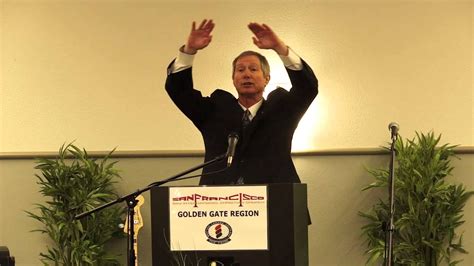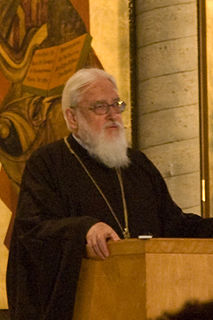Top 872 Scripture Quotes & Sayings - Page 14
Explore popular Scripture quotes.
Last updated on April 20, 2025.
On coming to the house, they (the Magi), saw the child with his mother Mary, and they bowed down and worshiped him. (Matthew 2:11) [This] adoration, too, was not the same as the worship of God. In my opinion they did not yet recognize him as God, but they acted in keeping with the custom mentioned in Scripture, according to which Kings and important people were worshiped; this did not mean more than falling down before them at their feet and honoring them.
The Scripture saith, The fool hath said in his heart, there is no God; it is not said, The fool hath thought in his heart; so as he rather saith it, by rote to himself, as that he would have, than that he can thoroughly believe it, or be persuaded of it....It appeareth in nothing more, that atheism is rather in the lip, than in the heart of man.
Parents must bring light and truth into their homes by one family prayer, one scripture study session, one family home evening, one book read aloud, one song, and one family meal at a time. They know that the influence of righteous, conscientious, persistent, daily parenting is among the most powerful and sustaining forces for good in the world. The health of any society, the happiness of its people, their prosperity, and their peace all find common roots in the teaching of children in the home.
God's Word is not presented in Scripture in the form of a theological system, but it admits of being stated in that form, and, indeed, requires to be so stated before we can properly grasp it - grasp it, that is, as a whole. Every text has its immediate context in the passage from which it comes, its broader context in the book to which it belongs, and its ultimate context in the Bible as a whole; and it needs to be rightly related to each of these contexts if its character, scope and significance is to be adequately understood.
Scripture says: "Blessed are those who mourn for they shall be comforted." I call on every American family and the family of America to observe a National Day of Prayer and Remembrance, honoring the memory of the thousands of victims of these brutal attacks and comforting those who lost loved ones. We will persevere through this national tragedy and personal loss. In time, we will find healing and recovery; and, in the face of all this evil, we remain strong and united, "one Nation under God."
Archaeology in general is the recovery and study of the material culture of past civilizations. Biblical archaeology is as an application of the science of archaeology to the field of biblical studies. Through the comparison and integration of Scripture with the evidence of history and culture derived from archaeology, new insights into the biblical context of people and events, and sometimes the interpretation of the text itself, are possible. In this way archaeology serves as a necessary tool for biblical exegesis and for apologetic concerns.
Mr. Langdon, I did not ask if you believe what man says about God. I asked if you believed in God. There is a difference. Holy scripture is stories...legends and history of man's quest to understand his own need for meaning. I am not asking you to pass judgment on literature. I am asking if you believe in God. When you lie out under the stars, do you sense the divine? Do you feel in your gut that you are staring up at the work of God's hands?
Is there an aesthetic "fit" in my work between God and the world? The "I' in my poems has from the beginning identified himself as Catholic, and my books certainly can be read as presenting a Catholic theology "in a very particular sense." Catholicism is a faith morally identified with the human struggle for human dignity and justice. It is a vision of the world incarnationally rooted in the senses, a faith of and in spoken and written words - Scripture, "the Word of God," the Logos.
Second, if you disbelieve in the reality of good and evil spirit agents, you fundamentally change the narrative of Scripture. The motif of spiritual warfare is a through-line of both the Old and New Testaments (NT). And in the NT, the meaning of what Jesus was doing in his life, ministry, death and resurrection is fundamentally tied up with the belief in spiritual warfare. Take away Satan, and you take away one of the most fundamental reasons Jesus came to earth!
As to those other things which we hold on the authority, not of Scripture, but of tradition, and which are observed throughout the whole world, it may be understood that they are held as approved and instituted either by the apostles themselves, or by plenary Councils, whose authority in the Church is most useful, e.g. the annual commemoration, by special solemnities, of the Lord's passion, resurrection, and ascension, and of the descent of the Holy Spirit from heaven, and whatever else is in like manner observed by the whole Church wherever it has been established.
There is however difference between the theology of liberation and traditional theology, the latter being based primarily On the Word of God made incarnate in the Holy Scripture Liberation theology is of course also inspired by the Word, but its representatives are convinced that God also speaks to us in everyday events and that, for example, information obtained through the mass media can be a special way in which God speaks to us.
The first priority will consist in restoring a sense of the acceptance of life as a gift from God. According to both Sacred Scripture and the wisest traditions of your continent, the arrival of a child is always a gift, a blessing from God. Today it is high time to place greater emphasis on this: every human being, every tiny human person, however weak, is created 'in the image and likeness of God' (Gen 1:27)
Water is also one of the four elements, the most beautiful of God's creations. It is both wet and cold, heavy, and with a tendency to descend, and flows with great readiness. It is this the Holy Scripture has in view when it says, "And the darkness was upon the face of the deep. And the Spirit of God moved upon the face of the waters." Water, then, is the most beautiful element and rich in usefulness, and purifies from all filth, and not only from the filth of the body but from that of the soul, if it should have received the grace of the Spirit.
From the Crusades, to the Inquisition, to American politics--the name of Jesus had been hijacked as an ally in all kinds of power struggles. Since the beginning of time, the ignorant had always screamed the loudest, herding the unsuspecting masses and forcing them to do their bidding. They defended their worldly desires by citing Scripture they did not understand. They celebrated their intolerance as proof of their convictions. Now, after all these years, mankind had finally managed to utterly erode everything that had once been so beautiful about Jesus.
Scripture is vast, and people can pick and choose what they emphasize, and so for hundreds of years verses that said that you are to welcome the stranger, that with Christ there's neither Jew nor Greek, male nor female, we've broken down the dividing wall with the original church, where Christians were first called Christian was the church of Antioch in which for the first time you had Jews, Gentiles of all different ethnicities come together as one people. That's when they were called Christians.
The amazing thing is that throughout Scripture and history it seems God has chosen the most seemingly unlikely and unqualified people to fulfill his plan and purpose on the earth. Most often, the response of those people has been to insist on their own unworthiness. And if they don’t-the people around them may do so, loudly and shrilly. And therein lies a danger: If we allow other people to tell us what we are and are not qualified to do, we will limit what God wants to do with us.
Solid scriptural theology should be valued in the church. Books in which Scripture is reverently regarded as the only rule of faith and practice-- books in which Christ and the Holy Ghost have their rightful office-- books in which justification, and sanctification, and regeneration, and faith, and grace, and holiness are clearly, distinctly, and accurately delineated and exhibited, these are the only books which do real good. Few things need reviving more than a taste for such books as these among readers.
The Scripture says, "This is the day the Lord has made; let us rejoice and be glad in it" [Psalm 118:24].Glory days are days that can happen right now. The key is understanding some basic principles that don't just apply to any one season of life but transcend all seasons of life - not allowing our circumstances to define our outlook on life, but allowing what God's Word says about life to define that outlook.
I am interested in Scripture and theology. This is an interest that I can assume I would share with a pastor, so that makes me a little bit prone to use that kind of character, perhaps, just at the moment. Then there is also the fact that, having been a church member for many years, I am very aware of how much pastors enrich people's experience, people for whom they are significant. I know that it's a kind of custom of American literature and culture to slang them. I don't think there is any reason why that needs to be persisted in.
... believing in a God whom we cannot but regard as evil, and then, in mere terrified flattery calling Him 'good' and worshipping him is a still greater danger... The ultimate question is whether the doctrine of the goodness of God or that of the inerrancy of scripture is to prevail when they conflict. I think the doctrine of the goodness of God is the more certain of the two. Indeed, only that doctrine renders this worship of Him obligatory or even permissable.
When biblical material touches on the natural world, we can legitimately use the tools of science. Sometimes that shows us - no shock here - that biblical writers didn't know as much as we now know about the natural world - but God knew that when he picked them, so that alone tells us that "doing science" that would satisfy a 21st century - and beyond - audience wasn't what God was interested in with respect to the enterprise of producing Scripture for posterity.
I’m not going askew from the principles on which the United States was built; I’m right there with our founding fathers. I’m a patriot and a Christian, and I’m moving forth with what they started. But now it’s gotten to where I’m some kind of nut or Bible beater.
I say, so be it. I’ll still go across the country spreading God’s Word, like I’ve done since I was twenty-eight. I may be only one man reading Scripture and quotes, carrying his Bible, and blowing duck calls to crowds, but, hey, it has to start somewhere. It’s what makes me happy, happy, happy.
Each family prayer, each episode of family scripture study, and each family home evening is a brushstroke on the canvas of our souls. No one event may appear to be very impressive or memorable. But just as the yellow and gold and brown strokes of paint complement each other and produce an impressive masterpiece, so our consistency in doing seemingly small things can lead to significant spiritual results.
Scripture is profitable for training in righteousness. No one succeeds at the highest level in sports without working out. No one makes it in music without lots of practice. No one excels in scholarship without years of study. And no one makes it far in the school of holiness without hours and days and years in the word. You and I simply will not mature as quickly, minister as effectively, or live as gloriously without immersing ourselves in the Scriptures. We need the Bible if we are to be competent Christians.
For my own part, I believe that in dealing with skeptics, and unbelievers, and enemies of the Bible, Christians are too apt to stand only on the defensive. They are too often content with answering this or that little objection, or discussing this or that little difficulty, which is picked out of Scripture and thrown in their teeth. I believe we ought to act on the aggressive far more than we do, and to press home on the adversaries of [Biblical] inspiration the enormous difficulties of their own position.
The idea that the universe itself is physically structured around hierarchy was sort of an integration of earlier science and theology that was made by people like Thomas Aquinas, that was assumed doctrinally in that tradition. The Reformation rejected that model of reality and created a highly individualistic metaphysics in the sense that it located everything normative that can be said about reality in human perception, there being, of course, no other avenue of knowing. There is Scripture, there is conscience, there is perception itself.
There God tells us exactly what is going to happen and scripture tells us that there is going to come a world leader who will initially bring overtures of peace. He will help the Jewish people rebuild their temple in Jerusalem. He will have a new economic system where you don't buy or sell without his mark. Initially, for some, it will look like a good deal because there will be peace, as I said.
I believe we're going to grow in heaven. I believe we're going to keep growing. The Bible says one day we shall see Him as He is, we shall become like Him. That's going to be obviously, becoming not gods, I don't believe that, that's the oldest lie in the Scripture, but becoming godly, becoming like Him.
There is no figure more common in scripture, and none more beautiful, than that by which Christ is likened unto light. Incomprehensible in its nature, itself the first visible, and that by which all things are seen, light represents to us Christ. Whose generation none can declare, but Who must shine upon us ere we can know aught aright, whether of things Divine or human.
From what cause the rite of baptism first proceeded is not expressed formally in the scripture, but it may be probably thought to be an imitation of the law of Moses concerning leprosy, wherein the leprous man was commanded to be kept out of the camp of Israel for a certain time, after which time being judged by the priest to be clean, he was admitted into the camp after a solemn washing. And this may therefore be a type of the washing in baptism, wherein such men as are cleansed of the leprosy of Sin by Faith, are received into the church with the solemnity of baptism.
Unfortunately, 19th-century scientists were just as ready to jump to the conclusion that any guess about nature was an obvious fact, as were 17th-century sectarians to jump to the conclusion that any guess about Scripture was the obvious explanation . . . . and this clumsy collision of two very impatient forms of ignorance was known as the quarrel of Science and Religion.
Believers are often encouraged to spend some time each day alone praying and reading the Bible. This is a good thing, modeled by Jesus himself. But too often people view this time with God as sufficient, and as separate from the rest of their lives; they essentially leave Jesus on their bedside table and ignore him the rest of the day. This is a far cry from the ongoing walking in the Spirit, abiding in Christ, persevering, praying, and rejoicing presented in Scripture.
If there were even one spark of evidence from antiquity that Jesus even may have gotten married, then as a historian, I would have to weigh this evidence against the total absence of such information in either Scripture or the early church traditions. But there is no such spark-not a scintilla of evidence-anywhere in historical sources. Even where one might expect to find such claims in the bizarre, second-century, apocryphal gospels...there is no reference that Jesus ever got married.
I taught what was clear in Acts 11:26: SAVED = CHRISTIAN = DISCIPLE, simply meaning that you cannot be saved and you cannot be a true Christian without being a disciple also. I taught that, to be baptized, you must first make the decision to be a disciple, and then be baptized. I taught that their baptism was invalid because a retroactive understanding of repentance and baptism was not consistent with Scripture.
Catholicism is the big house of Christianity. It's got many, many rooms in it. And I've always been attracted to the rooms which are to do with prayer. The mystical strain is the strain whereby the whole day can be given over to prayer through what we call lectio divina, prayerful reading of Scripture, through practice of meditation of when one uses the imagination and the intellect with respect to images, and then finally, and most difficult of all, contemplation, where one empties the mind of all images and all ideas, all concepts, in order to be completely attentive to God.
Every one of the world's "great" religions utterly trivializes the immensity and beauty of the cosmos. Books like the Bible and the Koran get almost every significant fact about us and our world wrong. Every scientific domain -- from cosmology to psychology to economics -- has superseded and surpassed the wisdom of Scripture. Everything of value that people get from religion can be had more honestly, without presuming anything on insufficient evidence. The rest is self-deception, set to music.
The God who inspired the Bible is the same God who made the universe, Earth, and all life. This God is the very definition of truth; therefore nature's record will never contradict Scripture and vice versa. When a seeming contradiction confronts us, we can know with certainty we have either misunderstood (one, the other, or both revelations) or perhaps we haven't yet dug deploy enough. Whatever the case, we can embrace the opportunity to gain greater knowledge and appreciation for the Bible, for nature, and for the God who is responsible for both.
In scripture we are told of some trusting in God and others trusting in idols, and that God is our refuge, our strength, our defense. In this sense God is the rock of his people, and false Gods are called the rock of those that trust in them. In the same sense the Gods of the King who shall do according to his will are called Mahuzzims, munitions, fortresses, protectors, guardians, or defenders.
I must be frank in my feeling that a notable heresy has come into being throughout our evangelical Christian circles -- the widely accepted concept that we humans can choose to accept Christ only because we need Him as Saviour and that we have the right to postpone our obedience to Him as Lord as long as we want to... The truth is that salvation apart from obedience is unknown in the sacred scripture... Apart from obedience, there can be no salvation, for salvation without obedience is a self-contradictory impossibility.
But his Lordship [tells]us that God is wholly here, and wholly there, and wholly every where; because he has no parts. I cannot comprehend nor conceive this. For methinks it implies also that the whole world is also in the whole God, and in every part of God. Norcan I find anything of this in the Scripture. If I could find it there, I could believe it; and if I could find it in the public doctrine of the Church, I could easily abstain from contradicting it.
The Bible is an ancient text from an ancient context. We live thousands of miles and thousands of years away from that context, which also represents different cultures. Archaeology is a modern means of revealing both the lost record of the ancient world, and the historical and social world of the Bible. While the purpose of archaeology is not to prove the historicity of the people and events recorded in Scripture, it can help immeasurably to confirm the historical reality and accuracy of the Bible and to demonstrate that faith has a factual foundation.
It often astonishes me that I did not see the importance of meditation upon Scripture earlier in my Christian life. As the outward man is not fit for work for any length of time unless he eats, so it is with the inner man. What is the food for the inner man? Not prayer, but the Word of God -not the simple reading of the Word of God, so that it only passes through our minds, just as water runs through a pipe. No, we must consider what we read, ponder over it, and apply it to our hearts.
I know not a better rule of reading the Scripture, than to read it through from beginning to end and when we have finished it once, to begin it again. We shall meet with many passages which we can make little improvement of, but not so many in the second reading as in the first, and fewer in the third than in the second: provided we pray to him who has the keys to open our understandings, and to anoint our eyes with His spiritual ointment.
How do we take our anger and transform it into sacred rage? How do we create a language that opens the heart instead of closing it? To bear witness is not a passive act. It's an act of consequence that leads to consciousness. It matters. I am curious. I want to know why. I was raised with a scripture that says, "The glory of God is intelligence." And to me our greatest intelligence is following our instincts, trusting our intuition.
Often a non-Christian knows something about the earth, the heavens, and the other parts of the world, about the motions and orbits of the stars and even their sizes and distances... and this knowledge he holds with certainty from reason and experience. It is thus offensive and disgraceful for an unbeliever to hear a Christian talk nonsense about such things, claiming that what he is saying is based in Scripture. We should do all that we can to avoid such an embarrassing situation, which people see as ignorance in the Christian and laugh to scorn.
Old friend, there are people—young and old—that I like, and people that I do not like. The former are always in short supply. I am turned off by humorless fanaticism, whether it's revolutionary mumbo-jumbo by a young one, or loud lessons from scripture by and old one. We are all comical, touching, slapstick animals, walking on our hind legs, trying to make it a noble journey from womb to tomb, and the people who can't see it all that way bore hell out of me.
I was taken in the Spirit to the burning bush on Mount Horeb, Moses' "first ascension," and allowed to witness the encounter he had with the Lord there. Throughout the visitation, I was enabled to know and feel the thoughts and emotions of Moses' inner being. ... There was a Holy Narrator beside me who helped me understand what I saw and heard, and he made references to relevant passages of Scripture. There were other Biblical figures also present - Joshua, Samuel, David, and even the Lord Jesus were there.
Often God will send us what we need in a package we don't want. Why? To let us know He's God and we cannot second-guess Him. We cannot search for answers merely with our heads; we must seek Him and His provision with our hearts. Scripture cannot be interpreted from our limited human mental understanding. There must be a breath of the Spirit of God. He alone gives wise counsel and correct application.
Jesus refers to the poor over and over again. There are 2,000 verses of Scripture that call upon us to respond to the needs of the poor. And yet, I find that when Christians talked about values in this last election that was not on the agenda, that was not a concern. If you were to get the voter guide of the Christian Coalition, that does not rate. They talk more about tax cuts for people who are wealthy than they do about helping poor people who are in desperate straits.
Fr. Amphilochios, the geronta or elder on the island of Patmos when I first stayed there, would have been in full agreement. Do you know, he said, that God gave us one more commandment, which is not recorded in Scripture? It is the commandment love the trees. Whoever does not love trees, so he believed, does not love God. When you plant a tree, he insisted, you plant hope, you plant peace, you plant love, and you will receive God's blessing.
Christians often equate holiness with activism and spiritual disciplines. And while it's true that activism is often the outgrowth of holiness and spiritual disciplines are necessary for the cultivation of holiness, the pattern of piety in the Scripture is more explicitly about our character. We put off sin and put on righteousness. We put to death the deeds of the flesh and put on Christ. To use the older language, we pursue mortification of the old man and the vivification of the new.
Do you want to be safe from the influence, ways, and lusts of the world and the flesh (I John 2:16)? From the sins which so easily entangles us (Hebrews 12:1)? Then delight in yourself in the Lord, in His provision, in His Word. Faithfully feed on the things that possess true substance and real meaning. When you remember that "all Scripture is given by inspiration by God and is profitable" (2 Timothy 3:16) and partake of such divine substance, then you are fed, you are led and you are safe!
The ingenerating of a principle of grace in the soul seems in Scripture to be compared to the conceiving of Christ in the womb... And the conception of Christ in the womb of the blessed virgin by the power of the Holy Ghost, seems to be a designed resemblance of the conception of Christ in the soul of a believer by the power of the same Holy Ghost.
Many there are who, not comprehending, not being affected with, that divine, spiritual description of the person of Christ which is given us by the Holy Ghost in the Scripture, do feign unto themselves false representations of him by images and pictures, so as to excite carnal and corrupt affections in their minds. By the help of their outward senses, they reflect on their imaginations the shape of a human body, cast into postures and circumstances dolorous or triumphant; and so, by the working of their fancy, raise a commotion of mind in themselves, which they suppose to be love unto Christ.
At the end of the day I see myself as a communicator. So any way that I can, any medium, any art form that I can use to communicate the truths of the Lord and scripture and my passion, then I'm going to do it. I don't know, I may do a spoken word piece one day, or I may turnaround and try to write a short story. I don't know, it just depends, but anything artistically that I can use I'll try to do it.
It is understandable how some people could give way to this kind of pervasive pessimism, but we speak of a gospel which brings good tidings of great joy and this must be reflected in our lives, if we are to be believable especially as we suggest to others that there is, in fact, not only a better way, but also the way. Scriptures that speak of man as a being who "might have joy" have more impact when falling from the lips or pens of men and women whose lives give fresh evidence of the validity of that scripture.
I am firmly of the opinion that the Macintosh is Catholic and that DOS is Protestant. Indeed, the Macintosh is counterreformist and has been influenced by the methodical path of the Jesuits.... It is catechistic: the essence of revelation is dealt with via simple formulae and sumptuous icons. Everyone has a right to salvation. DOS is Protestant, or even Calvinistic. It allows free interpretation of scripture, demands difficult personal decisions, imposes a subtle hermeneutics upon the user, and takes for granted the idea that all can reach salvation.
If God bestowed immortality on every man then when he made him, and he made many to whom he never purposed to give his saving grace, what did his Lordship think that God gave any man immortality with purpose only to make him capable of immortal torments? It is a hard saying, and I think cannot piously be believed. I am sure it can never be proved by the canonical Scripture.



















































